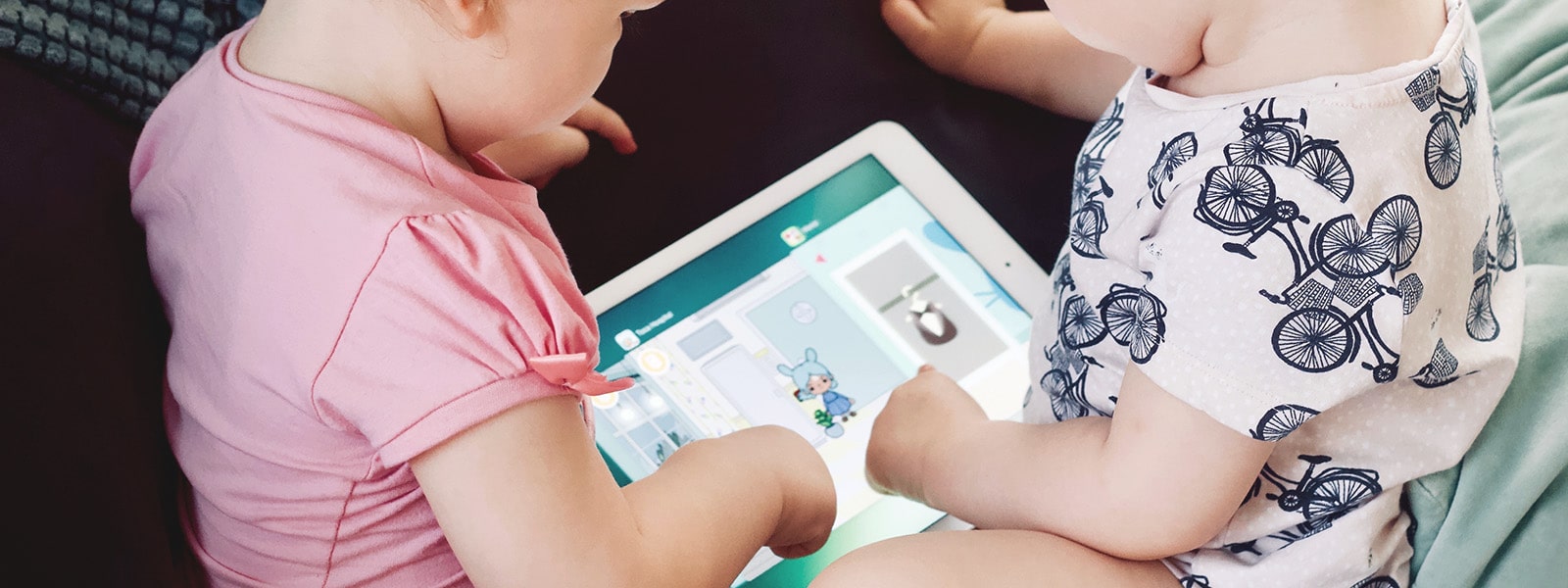Lincoln Infant and Child Development Lab

Researching Early Years Development
The Lincoln Infant and Child Development Lab opened in 2000 and research has been concentrating on different areas of categorisation and conceptual development as well as speech perception and language acquisition, especially word learning and early grammar.
Other research focuses on injury prevention - especially on the prevention of dog bite injuries. Here, we assessed the Blue Dog bite prevention programme, www.thebluedog.org and we have carried out further research projects on children's misinterpretation of dogs' facial expressions, on why children get bitten in the face, head and neck area more often. We have also undertaken eye-tracking studies of children's looking at dog faces and past and ongoing research also investigates children's and adults' perception of dog signalling and an assessment of the effectiveness of bite prevention in the home with a familiar dog.
Lincoln Infant Lab Package 1.0:
A new programme package for IPL, Preferential Listening, Habituation and Eyetracking.
Lincoln Infant Lab Package (PDF)
If you want to download the Infant Lab Package, please see bottom of this page.
CDI Links:
Links to the Lincoln CDIs for Infants and Toddlers which we use to assess the active and passive vocabulary of all children who come to the lab.
Lincoln Infant Communicative Development Inventory (PDF)
Lincoln Toddler Communicative Development Inventory (PDF)
Lincoln electronic CDI database
First steps into thinking and language
These are some of the questions we are trying to answer. By investigating infants' early categorisation behaviour and their early linguistic capabilities we hope to gain more knowledge about how babies categorise the world, how their conceptual development grows and about how language evolves from earliest speech perception up to full-blown grammars.
How do we do this?
Preferential Looking:
Babies participating in our studies sit on their parent's lap in front of a screen similar to a cinema screen for about 2-5 minutes. They see images of objects (e.g. a cup) or animals (e.g. a cat) and hear a friendly, female voice saying "Look, look at the cup" (or cat etc.).
Preferential Listening:
Here, children sit on their parent's lap and look at lights to their right and to their left while they hear speech sounds or words. While the child is watching the images on the screens in Preferential Looking, or looking at the lights in preferential Listening, we record the direction the child is looking in to discover what he or she understands.
More Information
Key Areas of Research
Word Learning:
Some of the key areas in early word learning are the following:
- nouns (like "dog" and "cat" or "table" and "chair")
- spatial prepositions (like "on" and "under", "above" and "below")
- adjectives (like "big", "dirty", "red" etc.)
- verbs (like "hitting" and biting").
Categorisation skills:
What is going on in babies' minds when they show evidence for understanding the word "bird"? What is the word connected to? All birds? Only the bird they saw once? Their grandmother's canary? How soon do they learn to connect atypical birds like ostriches and penguins with the word "bird"? We investigate how infants and children categorise objects and if they prefer typical to atypical objects/animals (e.g. a sparrow versus an ostrich) at different stages in their development. Looking at the role of typicality effects in early word learning gives us valuable insights into what these early words refer to. We are investigating especially the
- typicality of objects and animals in infants
- typicality of actions as perceived by children and adults
- as well as interactions between naming and typicality.
Contextualisation:
As context also plays a big role in children's development, research in the Lincoln Infant and Child Development Lab also focuses on context effects. Using Preferential Looking, we hope to find out in how far adults and children can be influenced in their categorisation of objects by different contexts.
All these efforts bring us closer to finding out about how thinking and language develop. You might be surprised to learn how much your child already knows!
We are always looking for parents and babies to volunteer for our studies!
For this project, the first in this country, we need parents of children aged 8 to 18 months from all across the UK. Volunteer parents will be asked to tell us which words their children understand and say and which gestures they do by filling in our new UK-CDI checklist.
If you would like to take part, please click here
or contact:
Dr. Kerstin Meints (Lab Director)
Lincoln Infant and Child Development Lab, University of Lincoln, Brayford Pool, Lincoln, LN6 7TS
Phone: 01522 886481
Fax: 01522 88 6026
E-mail: babylab@lincoln.ac.uk
The research has been approved by the Lincolnshire Research Ethics Committee.
Here is a selection of publications and coverage
Press coverage:
Reviews:
Meints, Kerstin. (1998). Review of Human evolution, language and mind: A psychological and archaeological inquiry. British Journal of Developmental Psychology, 16.
Articles:
Meints, K., Harris, P.L., & Plunkett, K. Big birds and dirty birds. Early comprehension of adjectives and the role of word stress” (in preparation).
Meints, K., Plunkett, K. & Harris, P.L.(2008) “Eating apples or houseplants? The role of typicality in early comprehension of verbs”. Language and Cognitive Processes, 23 (3). pp. 434-463.
Southgate, V., Gomez, J.-C. & Meints, K. The gravity error in children and macaques:
Failure of response control or representational inflexibility? (under review).
Meints, K., Plunkett, K., Harris, P.L. & Dimmock, D. (2004).“The Cow on the High Street:
effects of background context on early naming.” Cognitive Development 19,3: 275-290.
Meints, K. (2003). Kategorisierung und frühes Verstehen von Nomina, Präpositionen und Verben. In: Stefanie Haberzettel. & Heide Wegener (Eds.), Die Rolle der Konzeptualisierung im Spracherwerb (pp. 71-88). Frankfurt/Main, Bern: Peter Lang Verlag (in print).
Meints, K. (2003).“To get or to be? Use and acquisition of get- versus be-passives: evidence from children and adults”. In H. Cuyckens, T. Berg, R. Dirven & K.-U. Panther (Eds.), Motivation in Language: Current issues in linguistic theory (pp. 123-150). Amsterdam/Philadelphia: John Benjamins.
Meints, K. (2003). Shifting ontological boundaries or – how much influence does language have on perception and ontological status? Developmental Science 6,1:22-24.
Meints, K., Plunkett, K., Harris, P.L. & Dimmock, D.K. (2002).“What is “on” and “under” to 15-, 18- and 24-month-olds? Typicality effects in early comprehension of spatial prepositions”. British Journal of Developmental Psychology, 20, 113-130.
Southgate, V., Meints, K. (2000).“Typicality, naming and category membership in young children.” Cognitive Linguistics, Vol. 11 (1/2), 4-16.
Meints, K., Plunkett, K. & Harris, P.L. (1999b). “When does an ostrich become a bird? The role of typicality in early word comprehension”. Developmental Psychology, Vol. 35 (4), 1072-1078.
Meints, K. (1999a). “Prototypes and the Acquisition of the English passive”. In: Kokinov, B. (ed.). Perspectives on Cognitive Science, Vol. 4: 67-77. Sofia: NBU Press.
Books:
Meints, K. (1999c). Typizitätseffekte im Erwerb des englischen Passivs: Eine empirische Untersuchung. Wiesbaden: Deutscher Universitätsverlag.
Links:
Link to the National Childbirth Trust article (Under Construction) written by members of the three Babylabs in Oxford, Reading and Lincoln.
Dr Kerstin Meints' profile page:
Links to the Lincoln CDIs (Under Construction) for Infants and Toddlers which we use to assess the active and passive vocabulary of all children who come to the lab.
Links to the Blue Dog project.
Links to the Oxford Babylab where I worked before setting up the Babylab in Lincoln.
Link to our collaborators at the Norwegian Babylab in Trondheim
The material on this webpage may not be reproduced without permission. For more information please contact the Lincoln Babylab at: kmeints@lincoln.ac.uk
The Lincoln Infant Lab Package 1.0
Consists of five software packages that are used to create, present, score and analyse Intermodal Preferential Looking studies, habituation studies and Preferential Listening studies.
